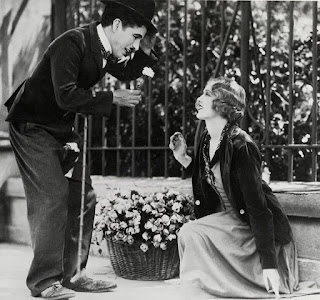Kenneth Tynan's article continues with Louise Brooks' appraisal of Charlie:
Louise is speaking:
"Do you know, I can't once remember him still. He was always standing up as he sat down, and going out as he came in. Except when he turned off the lights and went to sleep, without liquor or pills, like a child. Meaning to be bitchy, Herman Mankiewicz said, 'People never sat at his feet. He went to where people were sitting and stood in front of them.' But how we paid attention! We were hypnotized by the beauty and inexhaustible originality of this glistening creature. He's the only genius I ever knew who spread himself equally over his art and his life. He loved showing off in fine clothes and elegant phrases - even in the witness box. When Lita Grey divorced him, she put about vile rumors that he had a depraved passion for little girls. He didn't give a damn, even though people said his career would be wrecked. It still infuriates me that he never defended himself against any of those ugly lies, but the truth is that he existed on a plane above pride, jealousy, or hate. I never heard him say a snide thing about anyone.. He lived totally without fear. He knew that Lita Grey and her family were living in his house in Beverly Hills, planning to ruin him, yet he was radiantly carefree - happy with the success of 'The Gold Rush" and with the admirers who swarmed around him. Not that he exacted adoration. Even during our affair, he knew that I didn't adore him in the romantic sense, and he didn't mind at all. Which brings me to one of the dirtiest lies he allowed to be told about him - that he was mean with money. People forget that Chaplin ws the only star ever to keep his ex-leading lady (Edna Purviance) on his payroll for life, and the only producer to pay his employees their full salaries even when he wasn't in production.
"When our joyful summer ended, he didn't give me a fur from Jaeckel or a bangle from Cartier, so that I could flash them around, saying, 'Look what I got from Chaplin.' The day after he left town, I got a nice check in the mail, signed Charlie. And then I didn't even write him a thank-you note. Damn me."
Louise Brooks was one of the most fascinating and independent figures of old Hollywood. Here is the link to the complete Tynan article in the New Yorker of June 1979. It's an interesting look at this almost-forgotten star of silent film.


















